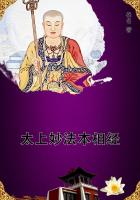This name, ``The Crossing,'' is likewise typical in another sense. The political faith of our forefathers, of which the Constitution is the creed, was made to fit a more or less homogeneous body of people who proved that they knew the meaning of the word ``Liberty.'' By Liberty, our forefathers meant the Duty as well as the Right of man to govern himself. The Constitution amply attests the greatness of its authors, but it was a compromise. It was an attempt to satisfy thirteen colonies, each of which clung tenaciously to its identity. It suited the eighteenth-century conditions of a little English-speaking confederacy along the seaboard, far removed from the world's strife and jealousy. It scarcely contemplated that the harassed millions of Europe would flock to its fold, and it did not foresee that, in less than a hundred years, its own citizens would sweep across the three thousand miles of forest and plain and mountain to the Western Ocean, absorb French and Spanish Louisiana, Spanish Texas, Mexico, and California, fill this land with broad farmsteads and populous cities, cover it with a network of railroads.
Would the Constitution, made to meet the needs of the little confederacy of the seaboard, stretch over a Continent and an Empire?
We are fighting out that question to-day. But The Crossing was in Daniel Boone's time, in George Rogers Clark's. Would the Constitution stand the strain? And will it stand the strain now that the once remote haven of the oppressed has become a world-power?
It was a difficult task in a novel to gather the elements necessary to picture this movement: the territory was vast, the types bewildering. The lonely mountain cabin;the seigniorial life of the tide-water; the foothills and mountains which the Scotch-Irish have marked for their own to this day; the Wilderness Trail; the wonderland of Kentucky, and the cruel fighting in the border forts there against the most relentless of foes; George Rogers Clark and his momentous campaign which gave to the Republic Ohio, Indiana, and Illinois; the transition period --the coming of the settler after the pioneer; Louisiana, St. Louis, and New Orleans,--to cover this ground, to picture the passions and politics of the time, to bring the counter influence of the French Revolution as near as possible to reality, has been a three years' task. The autobiography of David Ritchie is as near as I can get to its solution, and I have a great sense of its incompleteness.
I had hoped when I planned the series to bring down this novel through the stirring period which ended, by a chance, when a steamboat brought supplies to Jackson's army in New Orleans--the beginning of the era of steam commerce on our Western waters. This work will have to be reserved for a future time.
I have tried to give a true history of Clark's campaign as seen by an eyewitness, trammelled as little as possible by romance. Elsewhere, as I look back through these pages, I feel as though the soil had only been scraped. What principality in the world has the story to rival that of John Sevier and the State of Franklin? I have tried to tell the truth as I went along. General Jackson was a boy at the Waxhaws and dug his toes in the red mud. He was a man at Jonesboro, and tradition says that he fought with a fence-rail. Sevier was captured as narrated. Monsieur Gratiot, Monsieur Vigo, and Father Gibault lost the money which they gave to Clark and their country. Monsieur Vigo actually travelled in the state which Davy describes when he went down the river with him. Monsieur Gratiot and Colonel Auguste Chouteau and Madame Chouteau are names so well known in St. Louis that it is superfluous to say that such persons existed and were the foremost citizens of the community.
Among the many to whom my apologies and thanks are due is Mr. Pierre Chouteau of St. Louis, whose unremitting labors have preserved and perpetuated the history and traditions of the country of his ancestors. I would that Ihad been better able to picture the character, the courage, the ability, and patriotism of the French who settled Louisiana. The Republic owes them much, and their descendants are to-day among the stanchest preservers of her ideals.
WINSTON CHURCHILL.
End












